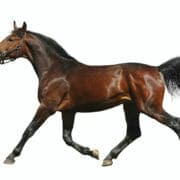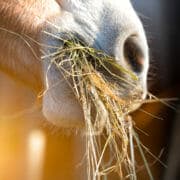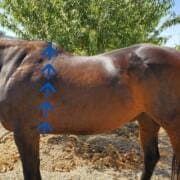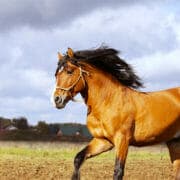Feeding for a Brilliant Coat Shine
There is nothing more pleasing to a horse owner’s eye than a brilliant, shiny coat. And aside from looking great, a shiny coat also usually indicates the horse is healthy inside and out. Question is, how do you make your horse shine? It’s really quite easy if you follow these simple steps.
5 steps to a brilliant coat
1. Feed a balanced diet
Many nutrients including protein, copper, zinc and vitamin A have a direct impact on the health and shine of your horse’s coat. These nutrients, as well as all of the other essential nutrients, must be provided in your horse’s diet at levels that will meet your horse’s requirements.
If you don’t keep your horse healthy on the inside you can’t possibly expect the outside to shine. This is where FeedXL comes in handy, it makes balancing your horse’s diet for good coat shine simple!
2. Add oils to the diet
If your horse’s diet is low in oils, and in particular, low in the essential fatty acids omega 3 and omega 6 it may mean your horse’s coat will be dull. Adding 1/8 to 1/4 of a cup of oil to the diet will help bring shine to the coat.
Various ways you can add oils to the diet include:
- Add oilseeds such as sunflower seeds, micronised or extruded full fat soybean, or flax/linseed to the diet.
- Add liquid oils to the diet. Almost all oils will have a positive impact on coat shine. Cold pressed flax/linseed oil, canola or soybean oil or any oils that have been fortified with omega fatty acids are particularly effective. Despite low omega fatty acid levels, rice bran oil and coconut oil are also good for coats.
- If you use a complete feed, choose one that contains ingredients like full fat soybean, sunflower seeds and cold pressed oils.
If you are feeding grains (which are high in omega 6) in your horse’s ration you should try to use an oil that is low in omega 6 and high in omega 3. For a full list of feed ingredients and their omega 3 and 6 levels, please read our post on Omega 3 for Horses.
3. Feed feeds known to darken coats
It is well known that feeds containing molasses will make a palomino’s coat go ‘smutty’ or dark in colour, while it will bring a deep liver colour out in chestnuts that have the genetics to go that colour. So if you are after a darker coat, try feeding a small amount of molasses (no more than ¼ cup/day for a 500 kg/1100 lb horse). NB Don’t feed molasses to horses who need a diet low in starch and sugars.
Alfalfa/lucerne is also known to darken coats so if you need a darker coat you can try adding some to your horse’s ration.
The minerals copper and zinc are also essential for correct coat color. Making sure your horse’s diet is meeting requirements for these minerals will make sure coat color remains true. If you want a really dark coat you could try supplementing with sensible amounts of additional copper and zinc to see if it helps?
4. Stay on top of worms
Nothing will take the shine off a horse’s coat faster than a heavy worm burden, so be sure to practice good management when it comes to controlling worms. Rotate your pastures, pick up manure where possible, especially if you live in a wet climate, use fecal eggs counts to determine worm burdens and worm when required. Work closely with your veterinarian on this!
5. Brush!
Brushing regularly will remove dead hair from your horse’s coat and will stimulate the horse’s sebaceous glands which release oils that cause the hair to lie flat and shine. A light rug will also have the same effect, so if you don’t have time to brush regularly you may need to throw a light rug on to keep your horse’s coat clean and shiny.
It nearly all comes down to a good diet
We can’t stress enough how important step 1 is. Balance the diet and make sure all of your horse’s nutrient requirements are met. If you build on this foundation, adding the extra touches for an amazing coat shine is simple.
Join FeedXL today and take control of your horse’s nutrition
Get EVEN MORE practical and personalised feeding guidance when you sign up to FEEDXL.
Do you have a question or comment? Do you need help with feeding?
We would love to welcome you to our FeedXL Horse Nutrition Facebook Group. Ask questions and have them answered by PhD and Masters qualified equine nutritionists and spend time with like-minded horse owners. It’s free!
Click here to join the FeedXL Horse Nutrition Facebook Group










